Therapeutic Knitting – Betsan Corkhill workshop
Back in October, I wrote about my conviction that knitting was good for our well-being, and I was very glad to be able to pick up my needles in those few weeks after my Dad died as I’m certain that losing myself in the rhythm of the rounds helped to get me through a difficult time.
Someone who would agree with that is Betsan Corkhill (look at me, on a roll with my celebrity selfies!).

Betsan worked as a Senior Physiotherapist specialising in neurophysiology until 2002 when she became so frustrated at a system which was geared around making people do exercises that they were not motivated to do that she left and went to work as freelance production editor for a magazine publisher instead. It’s a bit of a career change and you might think that the story ends there, but Betsan found herself working for various craft magazines and part of her job was to put together the letters page. She noticed that the majority of the letters that she read related to the therapeutic benefits of knitting and no doubt because of her physiotherapy background, started to realise that this was more than just coincidence.
Betsan began to do some serious research into the idea of therapeutic knitting and in 2005 set up the Stitchlinks website to provide a resource for general information on therapeutic knitting, for clinicians looking for more scientific data and also a forum for people to share experiences and develop friendships. Today, Betsan runs a knitting group at the Pain Clinic at the Royal United Hospital in Bath and works as a personal well-being coach to encourage people to consider knitting as part of a “toolkit” for managing their health and well-being. There are more PhD students than ever researching the benefits of woolly crafts, the medical profession are starting to take an interest and the idea of knitting for well-being is becoming more mainstream. It’s definitely progress.
I had read quite a bit about Betsan and therapeutic knitting so when I discovered that she was holding a workshop at Black Sheep Wools, I made sure to buy my ticket early so that I would get a chance to listen first hand to what she had to say. I’ve made pages and pages of notes, and it was an absolutely fascinating day, bringing together what I have already learnt about meditation, well-being and our sense of self, but also teaching me plenty that I didn’t know about neurology and pain management, and just how powerful our brains are. It’s hard to know where to begin, and I certainly can’t do an entire day’s workshop justice in a relatively short blog post, so I will try to give you a flavour of what it’s all about and urge you to take part in one of Betsan’s workshops yourselves if you like what you read and if you ever get the opportunity to go to one.
So what exactly is therapeutic knitting and why is it different to just knitting? According to Betsan, it’s a combination of knitting and knowledge to deliberately improve your well-being. This isn’t as complicated as it sounds: Betsan advocates using knitting as a tool to get you through stressful or painful situations and also in some cases to try to prevent them in the first place, so if you know that you get very anxious in, say, a doctor’s waiting room, then taking your knitting to keep yourself calm before you’re called in is therapeutic knitting. The chances are that you’ve been doing this for a long time without giving it any kind of name!
You might also be wondering if there is such a thing as therapeutic crochet, and the answer is yes, although Betsan says that she always teaches knitting first as some people get pains in their hands from crocheting. The point is to be doing something with both hands that you hold in front of your body as this engages your whole brain, and ideally something that you can focus on to fade out the rest of the world if you need to.
We were encouraged to take some easy knitting with us to do during the workshop, and whilst the sock that I took along might not look so easy, it is actually a very straightforward pattern so I had no trouble concentrating. (The yarn is Debbie Bliss Rialto Luxury Sock yarn (shade 06) and the pattern is Bleaberry Tarn by Louise Tilbrook.)
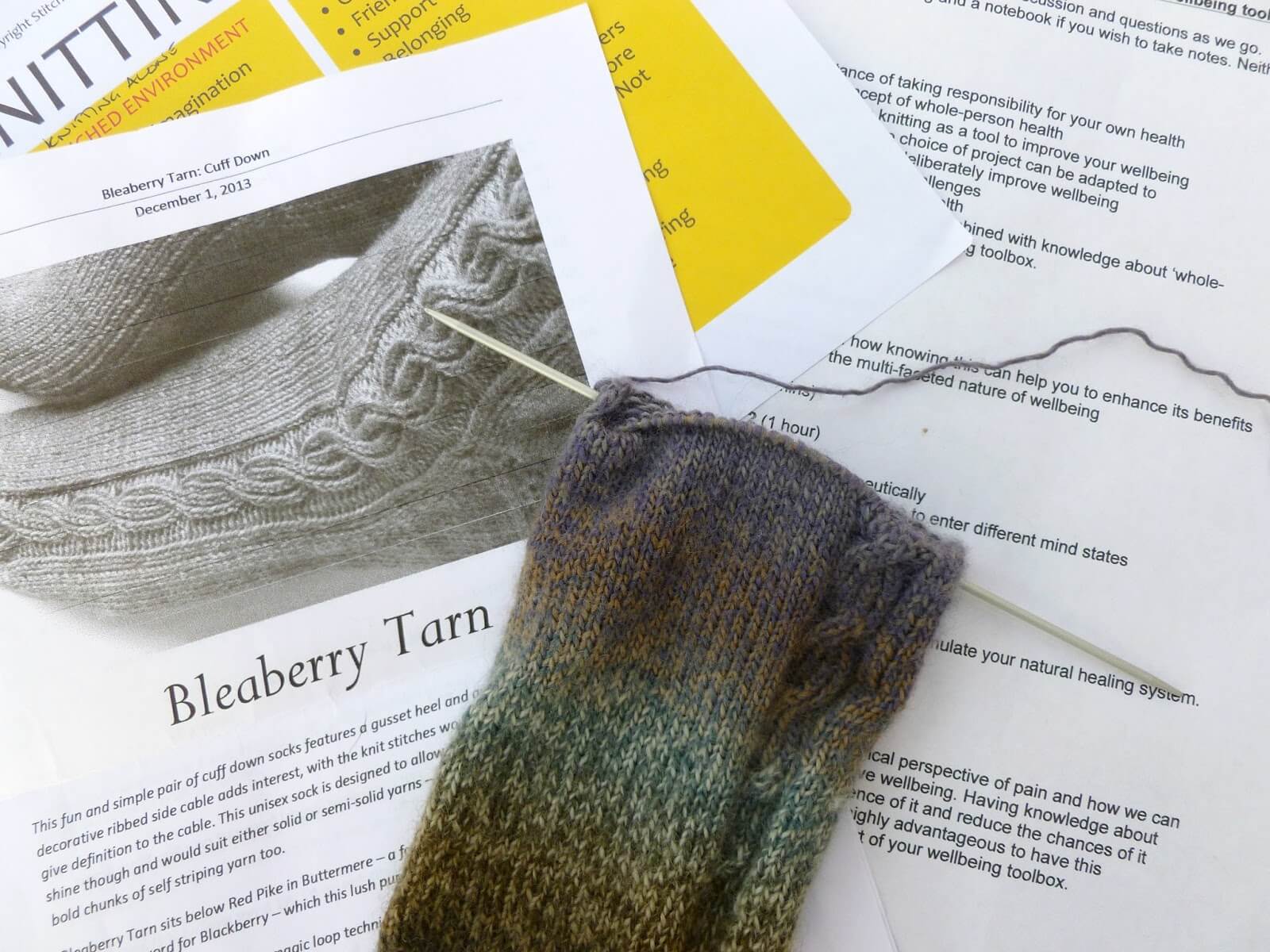
In fact, because my hands were occupied then I found it easier to concentrate on what Betsan was saying, without being tempted to fiddle with my pen or get distracted by drawing pictures in the margins of my notebook.

It was an ideal example of how our brains can be occupied in a beneficial way. Despite our belief that we are skilled multi-taskers, the truth is that our brains can only focus on one thing at once. I became very aware that there were times during the day when I became focussed on my knitting, other times when I was writing and other times when I put down everything in my hands just to listen. Understanding this is key to how therapeutic knitting works, and it seems too simple to be true – but aren’t the best ideas always that way?
When we are knitting, the act of moving two hands in a rhythmic and automatic movement uses both sides of our brains and makes it work hard. Working on a complicated pattern at the same time makes it work even harder and that uses up all of the brain’s attention. There’s just no room left for it to focus on stress, loneliness, pain, anxiety or a host of other conditions that are all rooted in the mind. Betsan has used knitting in a medical environment to calm panic attacks, relieve persistent pain and help drug users re-focus their lives. It won’t work for everyone – knitting just isn’t everybody’s thing – but for those who are drawn to using yarn and pointy sticks, the opportunity to use the skill to change mindsets and long-ingrained mental habits is one which has had startling results – and who’s to say it won’t work for you until you try it?
Our brains are constantly growing and developing until the day we die (in contrast to the long-held belief that it starts to die off in our mid-twenties) so the adage of not being able to teach an old dog new tricks simply isn’t true. All we need to do is feed our brains with cardiovascular exercise, novelty (new skills), laughter, community, a good diet and activities that you enjoy doing. Now that doesn’t sound like hardship, does it? And there’s not a single mention of eating sprouts in there either! 🙂
Knitting helps to reduce the stress brought about by the constant pressures of daily living, which are actually more dangerous than one big stressful situation such as a bereavement or moving house. The stresses build up quietly until one day they weigh so heavily that we feel that our ability to deal with them is far outweighed by the stresses themselves. Setting aside time to make ourselves feel good is often not a priority, especially when we are already stressed or in pain, so getting into the habit of daily knitting, even if only for a short while, can help to stop the stresses building up. Even those with joint pain such as arthritis can benefit from knitting, taking care with their posture and using circular needles to ensure that the weight of the knitting sits on their lap and doesn’t pull on their hands and arms.
It’s all about focusing on ability, not disability, and Betsan had brought this along to show us. What do you think it is? There’s a woodpecker here …

And an owl here …

And now you can see the whole walking stick – but if you met someone out in the street with this, would you notice that they couldn’t walk without the stick or that they had something that had been created in their hands? (There’s a free pattern for the cover here which you can customise in any way that you like.) Switching the focus can make all the difference to someone’s life.

It’s a powerful message, and one that was the theme of the day. We all have the power to change our own lives. Our brains have the flexibility to change and the neural pathways that are created every time we do something repetitively become stronger no matter what age we are. This can be positive – practice makes perfect whether you’re playing a sport, playing the piano or knitting – but it can also be negative as we can also practice feeling anxious, stressed or recalling bad memories. Our brain doesn’t differentiate between the good and the bad as it creates those pathways to make it easier for us to do things over and over, faster and faster every time we do it, it just does it. Once we know that, we can use that information to reprogramme our brains, to re-write the stories that we identify ourselves by. We can become whoever we want to be, and whilst we find our way, we can use knitting as a way to reach out or, in some cases, to hide behind in social situations that we find stressful. Holding your needles in your hands creates a barrier and a talking point. Knitting alone teaches us the enjoyment of solitude, it allows our creativity and imagination to flow and provides moments of meditation and relaxation. Knitting with a group offers friendship, support, mutual learning and gives us a sense of identity. Even if you choose not to participate in the conversation, the fact that you are there in the room with other people will enhance your well-being. I believe that for those who can’t get to a “real life” knitting group, then the opportunity to belong to a virtual one is just as valuable. With online groups such as the Winwick Mum Sockalong and Knit n Natter groups, there are no preconceptions about you, your ability to knit or how you live your life. There’s just friendship and support and an opportunity to watch conversations if you don’t want to join in.
One thing that Betsan does recommend is having a range of projects on the go for whichever mood takes you. This definitely counts as official permission to have plenty of WIPs! She recommends easy projects to take along to groups, a project for learning new skills and to keep your brain healthy, projects with a complicated pattern to make your brain work harder, a quick-fix project in bright colours and with an appealing texture to lift your mood (if you’ve ever wondered why you’re drawn to squish yarn either in your stash or in a yarn shop, it’s all down to keeping your brain satisfied!), a charity project as helping others is a sure-fire way to help ourselves to feel good, and an “emergency” project – something that’s always in your bag to take out and about with you, or for middle-of-the-night knitting. Not that I’m biased at all, but I can see how socks can tick off quite a few of those projects – plus the most important one of being portable so that you never need to be without your knitting!
I’m very aware that this is probably one of the longest text-fewest photo posts that I’ve written, so thank you if you’re still with me. I’m also aware that I’m attempting to condense an enormous amount of information into a small space so if you want to know more, I would certainly recommend that you look at Betsan’s book. It contains all the information that Betsan has researched and offers practical advice for using knitting to deal with stress and pain – in a preventative way as well as for dealing with stress and pain that have become a way of life. And it’s a good read – easy to digest and with plenty of space for making notes so that it can become your own therapeutic knitting handbook.
I thoroughly enjoyed learning more about therapeutic knitting and will certainly be doing my bit to promote the idea that “bilateral rhythmic psychosocial intervention” (as it has to be referred to in certain medical circles) is something that can help to maintain our feelings of well-being. I’m looking forward to seeing how the research develops over the coming years and if that means more pairs of socks in the world, then that can only be a good thing!


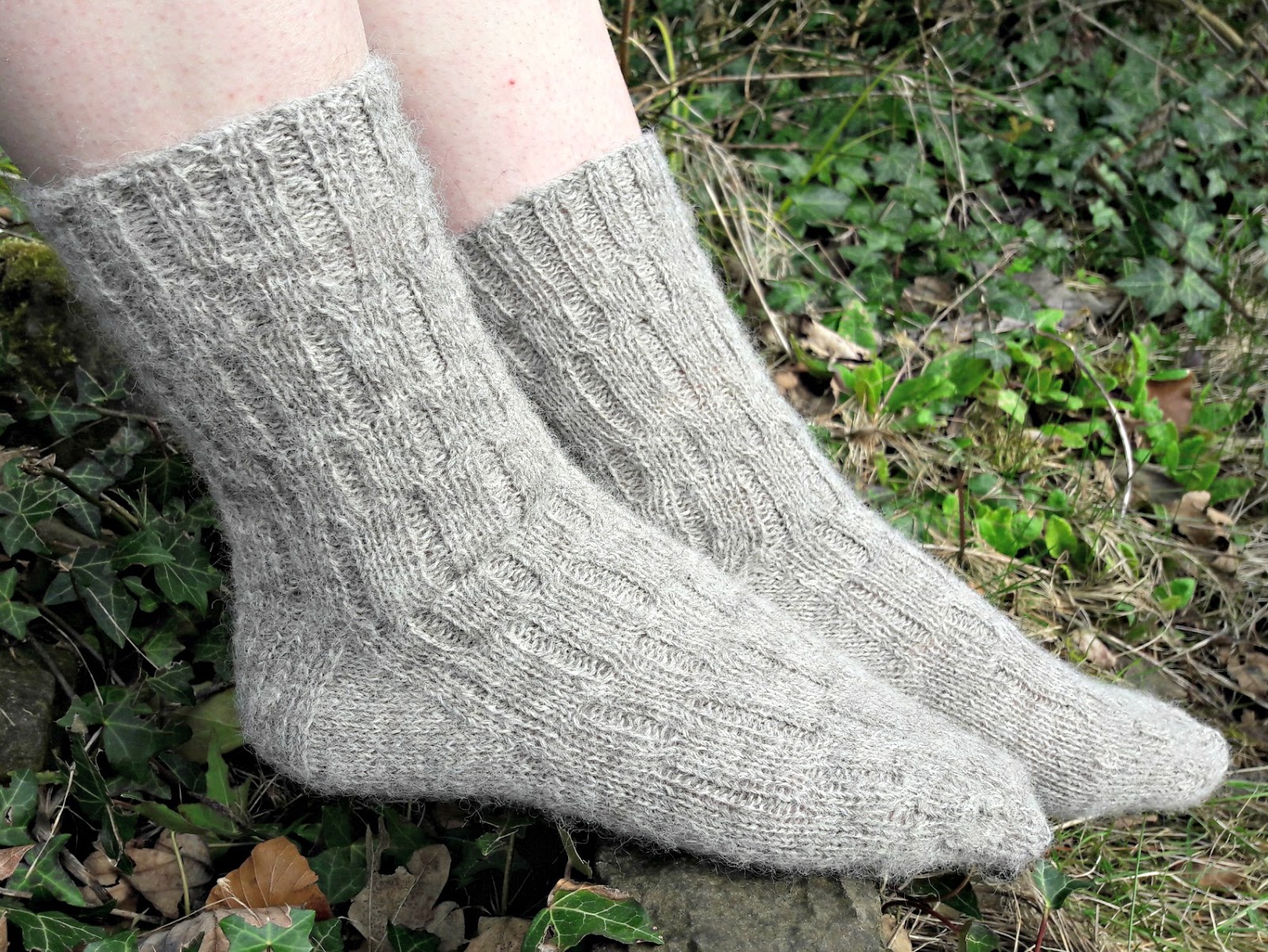

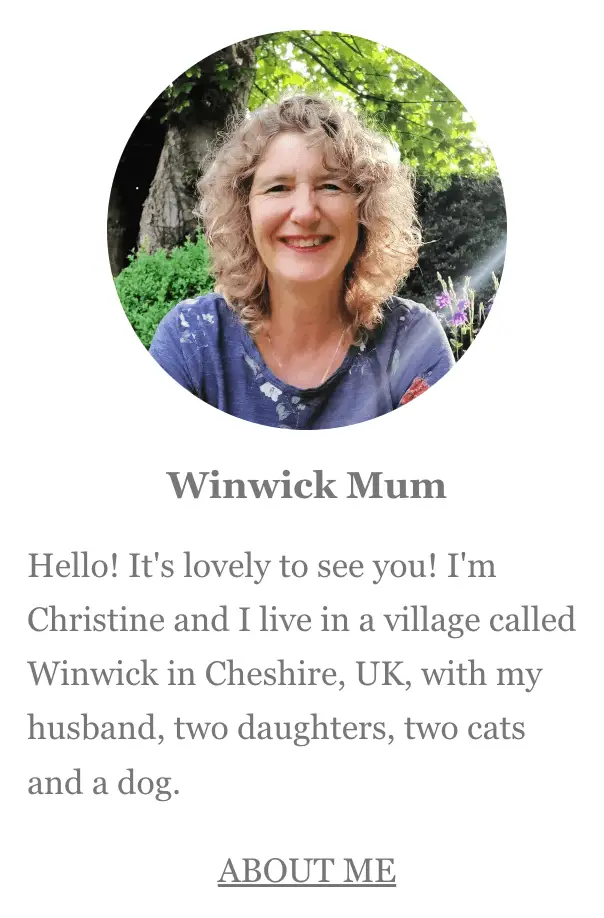

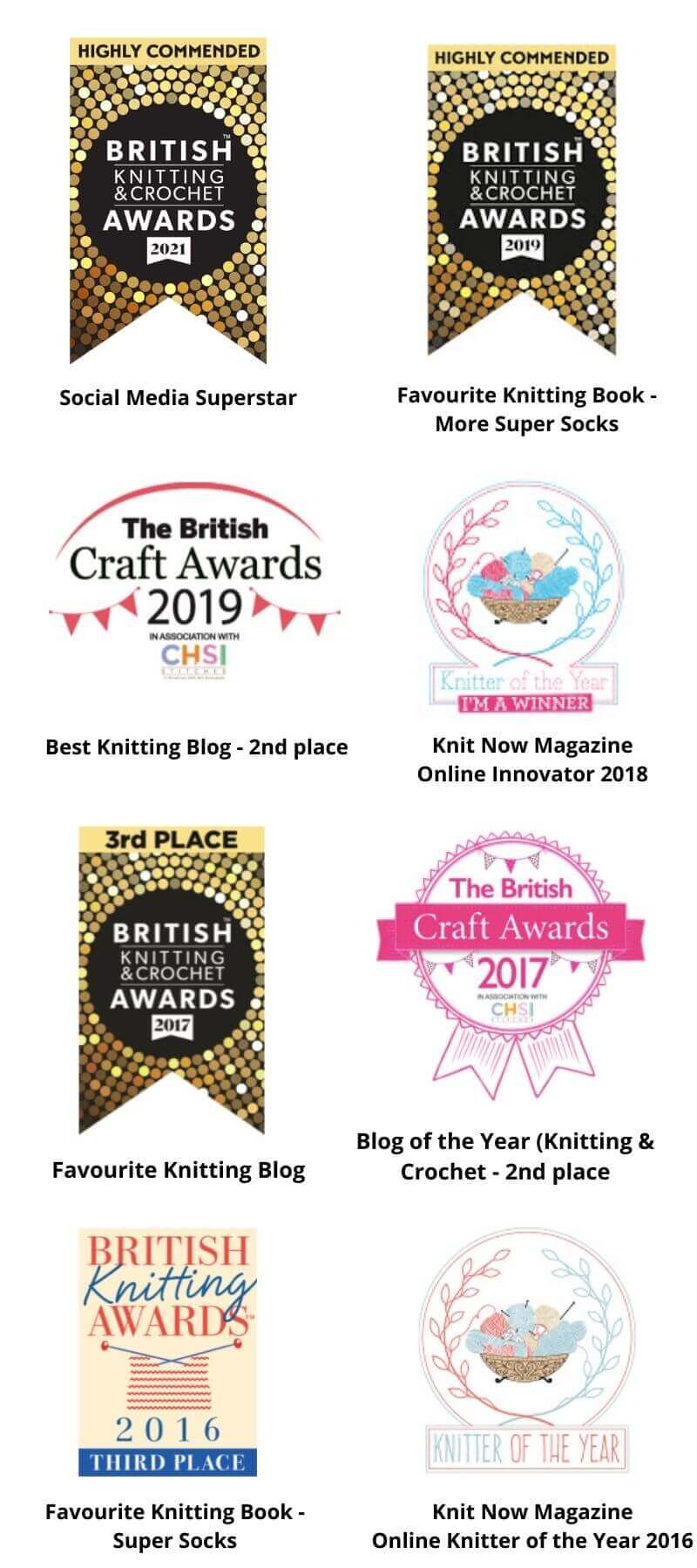

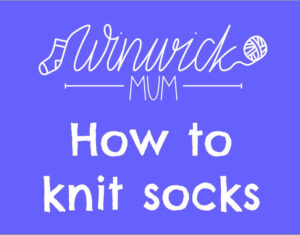
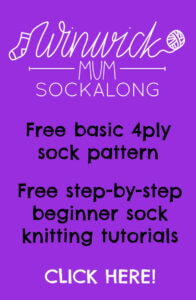
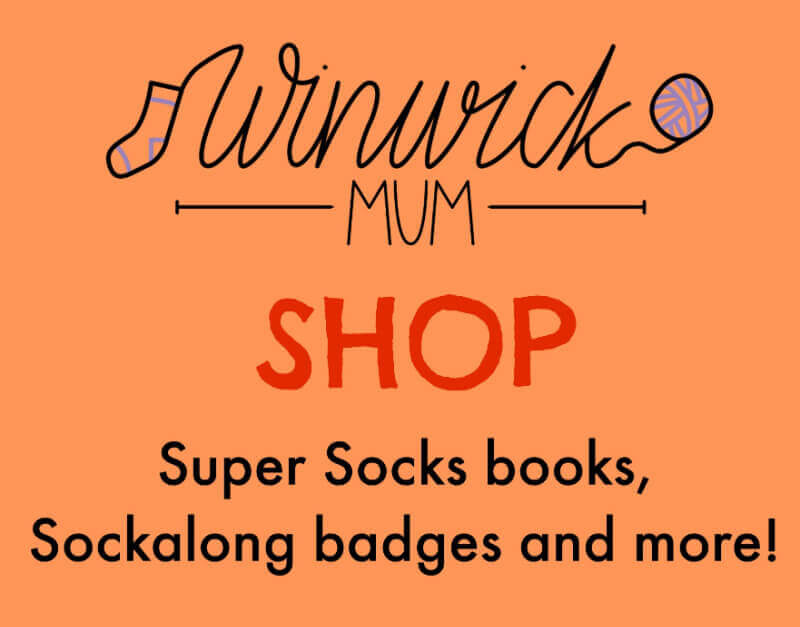
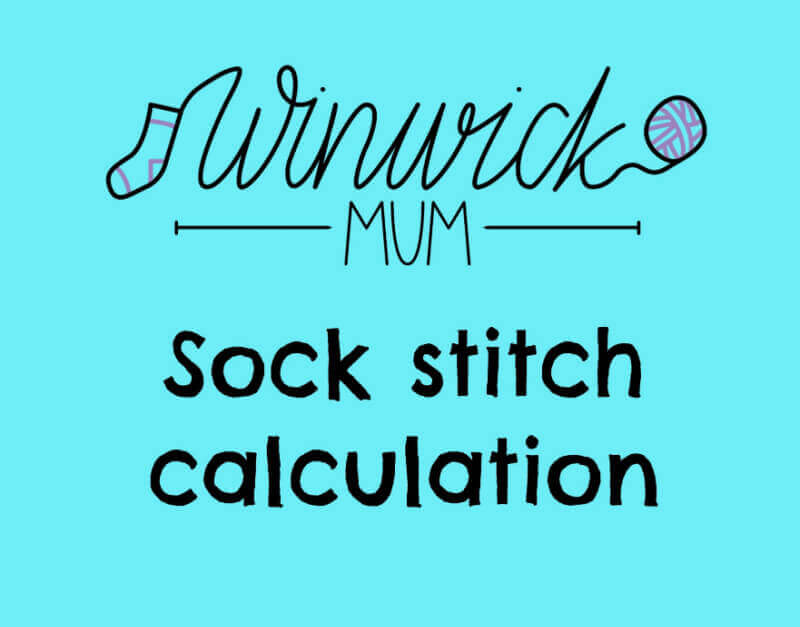
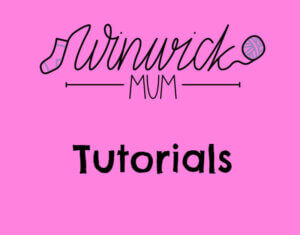
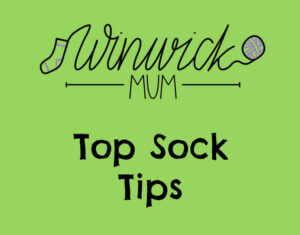
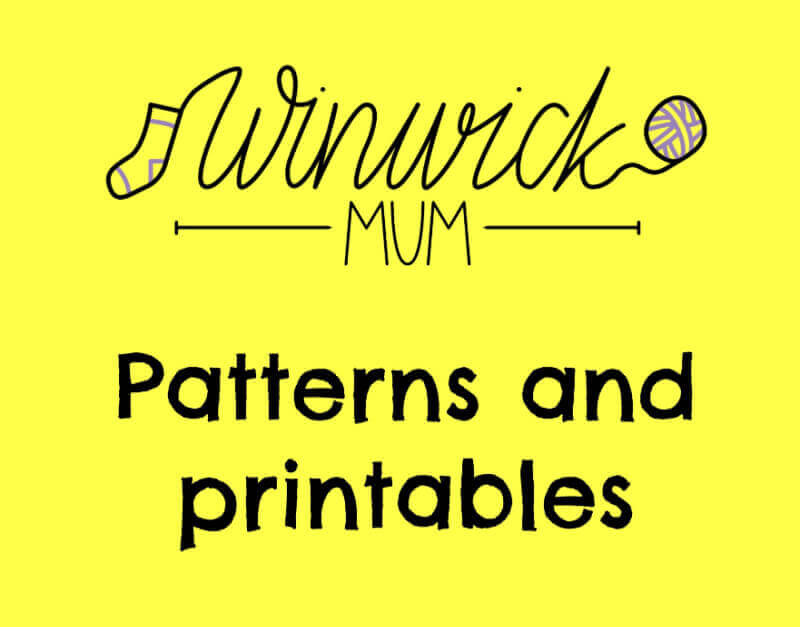
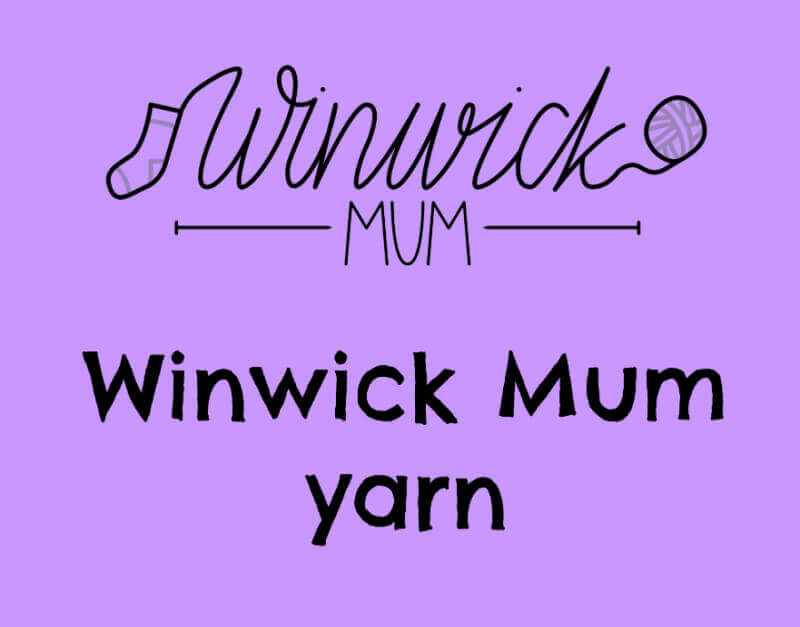
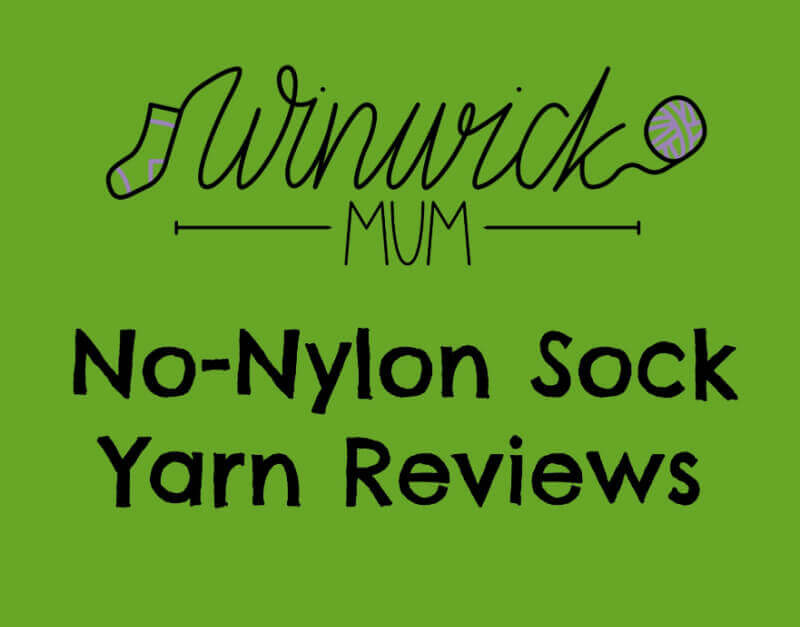
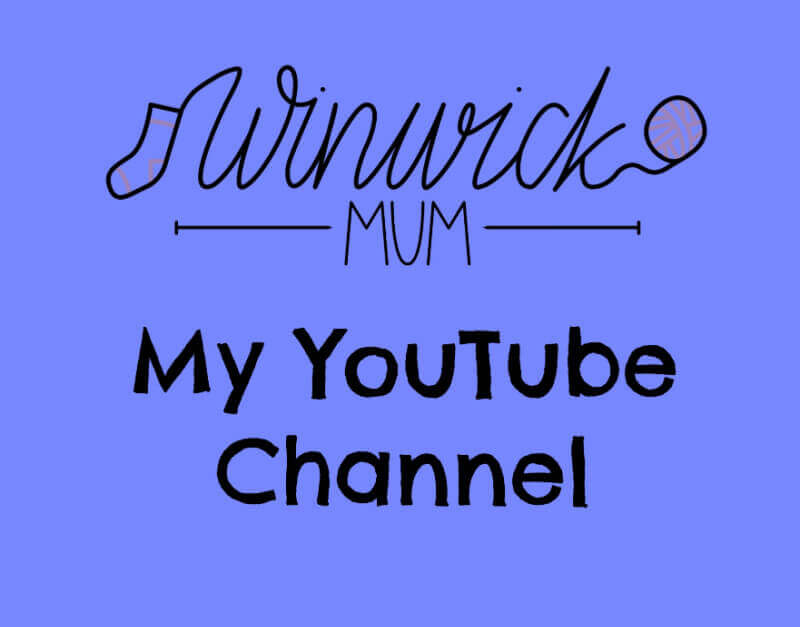
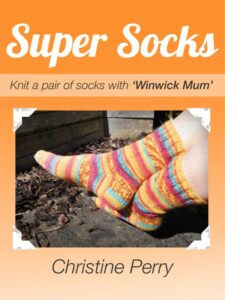
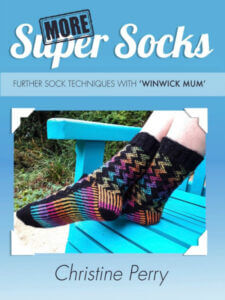
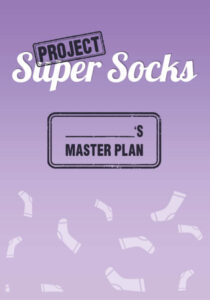

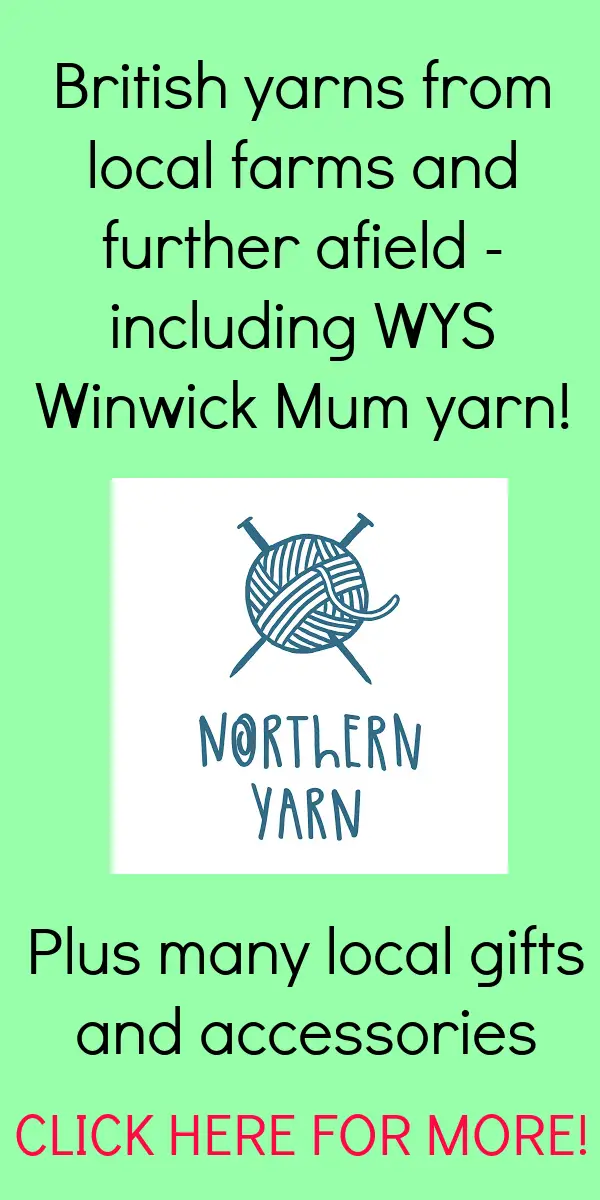

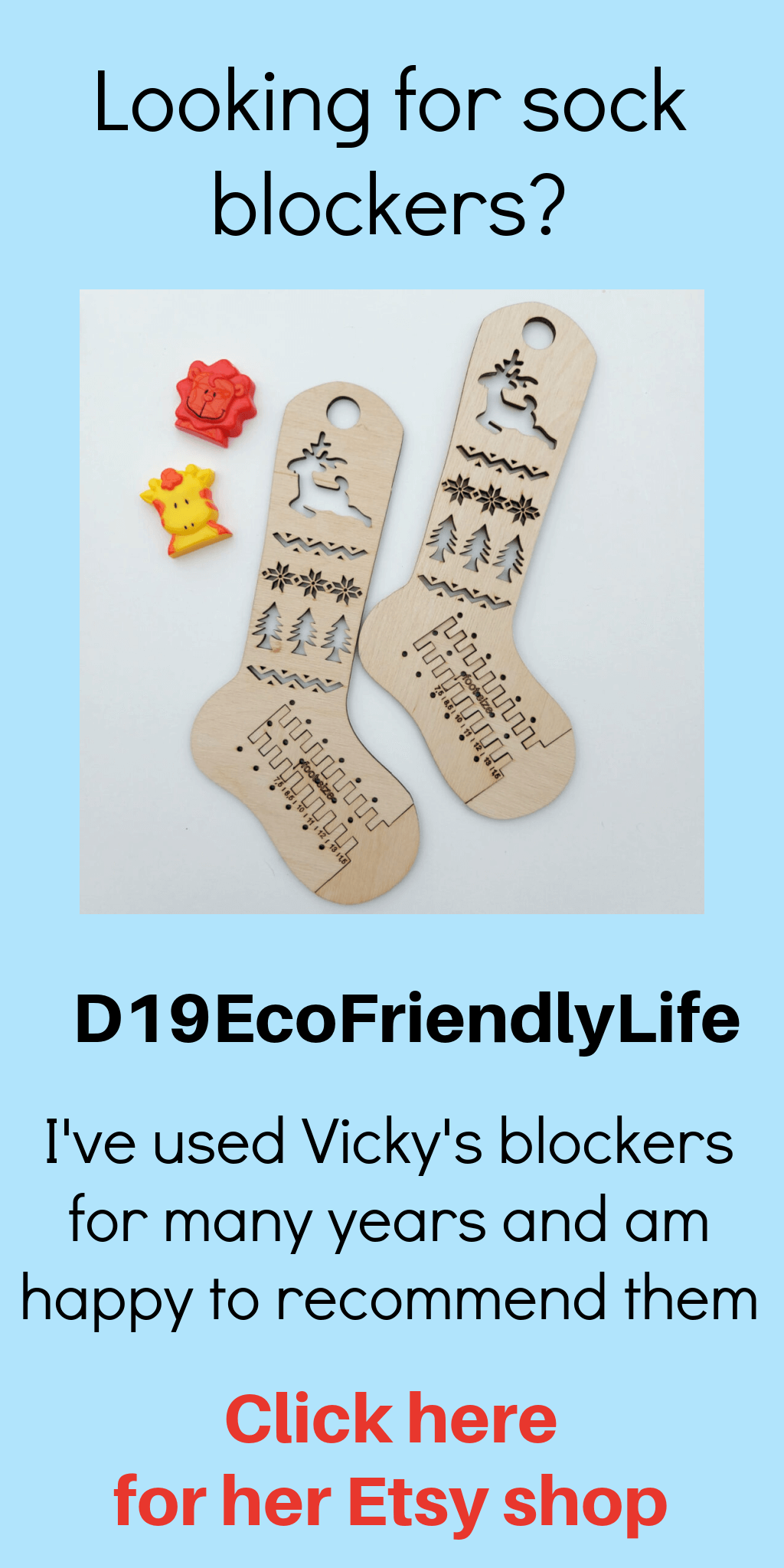
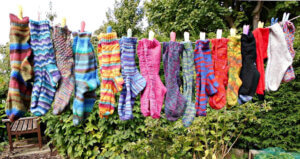
Such a wonderful post and so interesting! I've always believed that knitting has gotten me through many a bad period in my life and I'm certain that if I hadn't been a knitter I would have suffered from serious depression and ended up on some sort of medication. Whenever I need to seriously think about something I reach for my needles and they help me sort the wheat from the chaff! Thanks again for sharing… xxx
Thank you too! It's interesting that you say that knitting helps you to clear your mind; that was another thing that we talked about during the workshop – how it's possible to visit unpleasant thoughts and emotions whilst you're knitting without being affected by them in the same way. It really is incredible when you stop to think about it! xx
So interesting and confirms what I have always suspected. One of the other side affects of knitting in public I have noticed recently is people talking to me about difficult subjects or personal problems. I'm not sure why,is it that we make them feel safe?or is it that your whole focus is not on them? Maybe something else to research.
That is interesting, Nicola. It may well be because your whole focus isn't on them; there has been some research into the fact that men can often only talk about personal problems if they're side by side with someone and doing something practical because they can't always cope with the face to face interaction. It makes you think, doesn't it? xx
Yes, when men talk they usually stand side by side & often with their arms crossed. Energetically speaking, not showing the other person all the energy from their chakras, blocking them off.
Thank you for this post. It is so true. I am the mother of a special needs adult son and I can attest to the fact that knitting and crochet gets me through some difficult days.
It's wonderful to have a skill that can let you tune out even for just a little while – and somehow, when you come back to face the world again you feel refreshed. It's like magic! xx
Oh wow, how interesting! I learnt to knit to ease exam stress, so I definitely agree to it's therapeutic properties! (Also I have the same Bleaberry Tarn pattern, I'm thinking of Regia Fluormania!)
You're going to love the pattern, Jennifer, the cables are very effective! I'm trying to persuade big daughter that she needs to knit to ease her exam stress but so far she's not convinced. Doesn't work for everyone! xx
What a fantastic blog post Christine 🙂
Thank you! It was a fantastic day! xx
Very interesting. Oh look at you with your 'a very straightforward pattern' LOL. I've downloaded it so it's your fault if your inbox is full of messages from 'that woman' again! 🙂
You're not going to have any problems with the pattern, and you can't hide behind "Unknown", you know! 😉 xx
very interesting. Knitting and crochet has certainly helped me through difficult times – stress, depression, bereavement, surgery etc! I am thinking of buying betan's book. I am interested in the role of therapeutic knitting in dementia, as I work with patients with this condition, and am wondering if she has dealt with this.
We did talk about dementia during the workshop, particularly in relation to colour and texture (which are both present in the Twiddlemuffs which many people are making for dementia patients). It might be worth you contacting Betsan directly through the stitchlinks.com website to talk it through with her xx
I belong to a charity which provides knitted items for the needy. Two of our knitters have Alzheimer's but they can still remember how to knit a square and do. ( we sew them into blankets for them)
That's quite amazing – it just shows that we never forget anything! xx
What a fabulous post, the reasoning behind why knitting is so pleasurable is fascinating. During a period of mental ill health I was taught the benefits of mindfulness, which I often practice with an easy knit, and the pleasure of learning a new skill is a real mood lifter. I also love the idea that having *ahem* several works-in-progress is a good thing and not just me being a great starter and a bad finisher hehe. Thanks for sharing x
We talked about mindfulness during the workshop too (there was so much I couldn't fit into the post!) and how well it works not just with knitting but with anything that you're doing. You've obviously got a good grip on what works for you, Lisa, which is brilliant. And I also love the idea that we don't have to always finish one project before we start the next … 🙂 xx
Sounds like a great workshop. Have you read 'Knitting Yarns' edited by Ann Hood? A number of authors write about their 'knitting journey' and the author Sue Grafton lists the wonderful life skills that children learn via knitting…a great book! When doing my Masters, if I was having trouble getting an assignment to 'jell', I'd sit and knit and the solutions would pop into my head pretty quickly…never failed me! Lol
I haven't read the book, Maria, but I'll put it on my list, thank you! I hope you cited knitting in your acknowledgements for your dissertation! 😉 xx
Lol!
Hear hear to everything you say. And a good excuse to start another project – it's research!Lol. Lx
Absolutely! 🙂 xx
Hi my name is Lisa? It's really funny that by happy chance this week i discovered Betsan Corkhills work. Was definitely thinking of giving it a try and now it has come up on one of my fav blogs. Now definitely going to pick up my knitting needles again. Love your blog. Thanks Lis
Hello Lisa, thanks for your comment! It sounds to me like you should definitely pick up your needles again – I firmly believe that coincidences like this are telling you something so choose some lovely yarn and cast on! And to know that this is one of your favourite blogs? Thank you, you've made my day 🙂 xx
Very interesting, thank you for this information.
You're very welcome! xx
I think it all makes perfect sense and particularly like the bit about having different projects on the go and the reasoning behind that. I think it's the same with lots of different hobbies, not only are they therapeutic but they can be life-savers in some instances, I know many people use gardening for therapy too.
Oh definitely, Jo – fresh air is magic and I think everyone should get outside as often as they can. I think it's a case of finding what works for you, and it's great that other activities are now at least being considered as a reasonable option xx
Thank you very much for your blog post. I really enjoyed it. Your writing is wonderful…so upbeat….you are a shining example of your post… It was very interesting and confirms knitting is therapeutic on many levels. I am an embroiderer who is trying to learn to knit socks and hopefully one day as well as you knit socks! 😉 Best wishes, Dianne
South Australia
I'm so pleased you enjoyed it, and hopefully one day you will be wearing your very own hand-knitted socks! xx
A fascinating post, thank you for taking the time to write it all down to share with us. I have long beliefs that you have outlined here. I know that knitting has gotten me through some difficult times over the last few years. I am never without a project on the needles and always have several on the go of different levels and sizes. It's good to know that research has come to the same conclusions as me!
I think knitters (and crocheters) have always known the benefits of what they are doing, but it has taken someone with Betsan's medical background and empathy with the craft to be able to push harder to bring it into the mainstream. Having research to back up what people have known instinctively for generations means that in the future it can be taken more seriously as an option for those who respond to the craft xx
Thanks for a very interesting post. I learned to knit at primary school. Pity that doesn't happen now. I've tried to interest my daughters but no luck yet. But my granddaughter would love to learn. Unfortunately she lives about three hours drive away. Maybe her other granny will help her. While undergoing radiotherapy recently I always took my crochet (as it was easier to lift and lay.) Not because I was in pain or stressed but just because I hate to be idle! It always caused comments although the men often called it knitting.
I love to knit and I belong to a craft group and we produce an amazing number of items for various charities. It's also nice to be able to give garments to our local maternity hospitals. Since discovering your blog I've become addicted to knitting socks with a small circular needle. I'm also knitting your gloves on a circular needle and some seafarers' hats in the round.
I think I may be a fully paid up knitting addict so thanks for sharing Betsan's talk. x
My girls aren't terribly interested in knitting at the moment although they both know how to do it. I think you come to these things at the right time for you, and it's never too late or too early. I hope your granddaughter does get chance to learn and then it might be something that you could do together one day. It certainly sounds like the sock bug has got you – circular needles are fab! xx
What an interesting post. I also think knitting keeps your brain active what with counting rows and stitches, switching colours and following a pattern. Maybe next time I have a dentist check up, I'll take my knitting (it's got to be better than watching the toothy videos they show).
Yes, you're absolutely right, Anne! Knitting works on so many levels to make our brains work – and I'd definitely recommend taking it to the dentist's! 🙂 xx
Hello Christine. I am agreat believer in therapeutic knitting too although I havent been to any of Betsan's workshops. However I have signed up for a four day knitting workshop/retreat called "Knitting to soothe the soul" in Grasmere.I'll cut and paste the details from the main website in case you know anyone who'd like to go.. Its fantastically good value too for four nighs full board!
Knitting to Soothe the Soul
Monday 16th – Friday 20th May
Led Hilary Grundy 7 places £390
This course is for knitters of all abilities. The programme has been designed to increase the satisfaction you feel when winding yarn around two needles. You will increase your repertoire of knitting techniques, so knitting several colours at once becomes a breeze. You will see how you to use knitting as an aid to sitting, and walking, meditation. You will learn the secrets of adapting any pattern, to any wool, on any needles. Knitting ethically and sustainably is important, and this, too, is included in the programme. All of which combine to soothe the knitters’ soul.
Course starts Monday 5.00 pm and finishes Friday 10.00 am
015394 35389
glenthorne.org
Glenthorne Quaker Centre, Easedale Road, Grasmere, Cumbria,
This sounds lovely, Janet, I hope your soul is very soothed by the time you return home! xx
I used to knit all the time. I only. Richer now. It it has the same therapeutic effects. The knitting also gives us a dose of colour therapy. Having different projects may give us different colours to use. I react strongly to colour. I have just started teaching my 5 year old grand daughter how to crochet and she loves it. Her dad, my son, has started to learn too to help his little girl.
I have had many long term illnesses and spent lots of time knitting & crocheting. Just surfacing from 4 years of being e tremely I'll again and ha e been delighted when I pi led up my crochet needle. I knew I was on the way to recovery. I agree wholeheartedly with Betsan
I'm glad you're feeling well enough to crochet again now, Therese. Betsan has brought out a new book of therapeutic crochet projects so that might be worth having a look at. The sooner your granddaughter learns to crochet, the sooner she'll benefit from a fabulous craft! xx